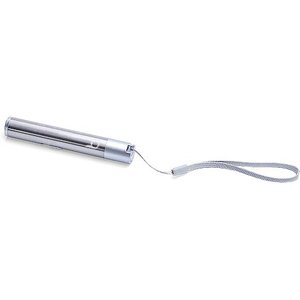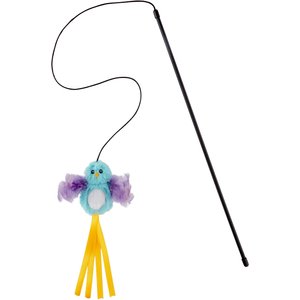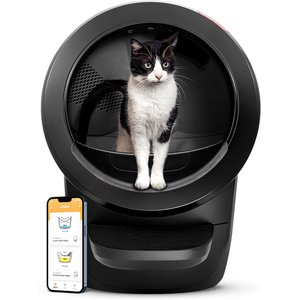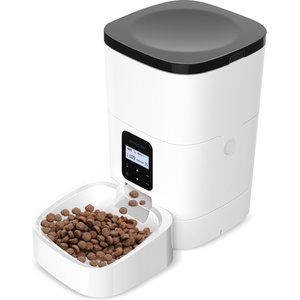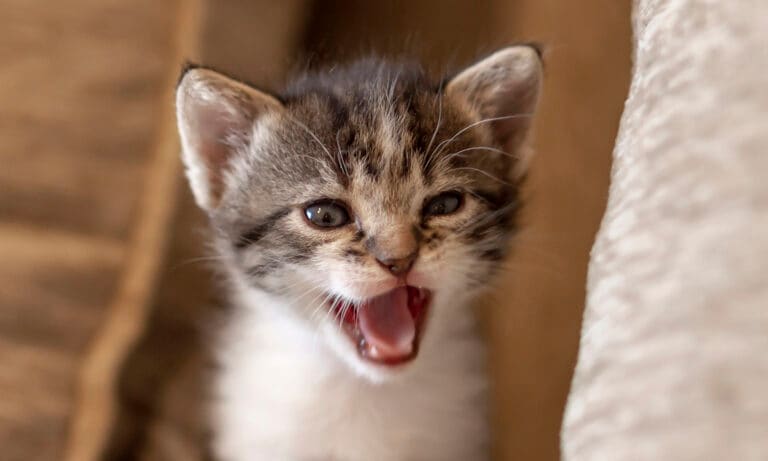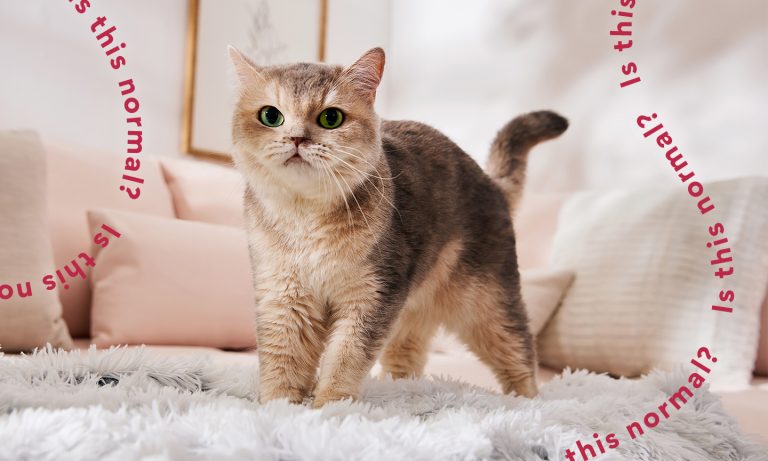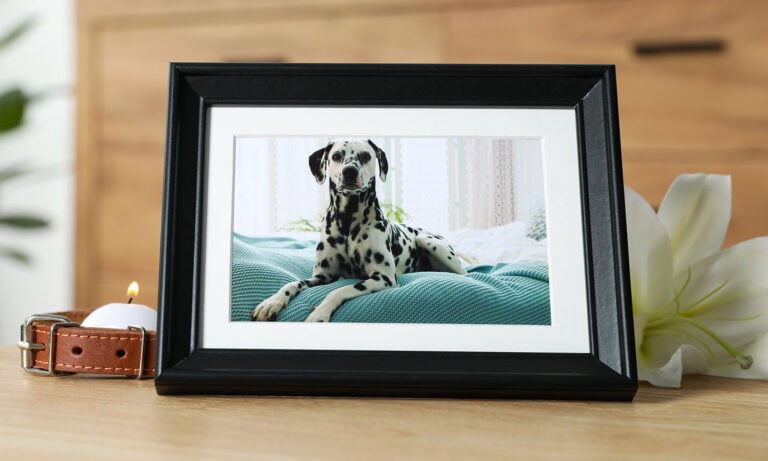If you notice your kitty seems to be moping around lately, you may be wondering if your cat is depressed. While experts say cats don’t get clinical depression in the same way humans do, cats can show various signs of depression when something is physically or emotionally wrong.
Cat depression can develop due to a number of causes, from medical issues to environmental changes. We talked to two vet experts to get the scoop on depression in cats—and what you can do to help your feline companion cheer up.
How to Know If Your Cat Is Depressed
Click to jump to each section.
Can Cats Get Depression?
Yes, cats can get depressed.
According to Dr. Carlos Siracusa, DVM, ACVB, director of Ryan Hospital's Companion Animal Behavior Medicine Service and associate professor of clinical behavior medicine at the University of Pennsylvania in Philadelphia, there’s no clinical feline depression diagnosis that’s equivalent to human depression outlined in the DSM (Diagnostic and Statistical Manual of Mental Disorders). But cats can be depressed in that they can appear subdued and reluctant to engage in social interactions.
Signs of a Depressed Cat
This withdrawn behavior is one of the most common signs of a depressed cat. Dr. Siracusa says you may notice your cat spending a lot of time hiding in an isolated spot, like under the bed or on top of upper cabinets in the kitchen.
Depressed cats may also become less active and stop engaging in interactions that would be expected from a cat of that age and physical condition. For example, you would expect a young cat to engage in playtime. If they don’t, it could be a sign of depression.
Other signs and symptoms of depression in cats include:
- Loss of appetite
- Reduced activity
- More time spent sleeping
- Inappropriate elimination (urination or defecation outside the litter box)
- Poor coat and/or skin condition
- Weight loss
- GI problems (constipation or diarrhea)
- Urinary tract and/or bladder issues
- Vocalization (meowing and/or excessive yowls)
- Behavior problems, like aggression or avoidance
- Excessive scratching and other changes in grooming habits
Cat Depression Causes
Many things can make a cat depressed, from changes in their environment to undiagnosed health problems.
First, it’s important to rule out physical disease. Some sick cats may not show overt clinical signs of physical disease and instead just appear depressed. If you’re able to rule out an underlying health condition, Dr. Siracusa says the most likely cause of depression is chronic distress secondary to their environment.
Some things that can cause this distress are:
- Moving to a new home
- Bringing home a new baby or new pet
- Lack of stimulation
- Loss of a loved one (human or animal)
- Poor treatment
- A change in their (or your) schedule
There can also be physical causes of depression, like:
- Poor nutrition
- Injury and/or pain
- Sickness (fatty liver disease, arthritis, dental problems, upper respiratory infections and cancer can be likely causes)
How to Cheer Up a Depressed Cat
Ultimately, the most important thing you can do for a depressed cat is create a safe environment for them. Never try to force them to engage with you, but you can try the following to cheer them up.
Play With Them More
Indoor cats are especially prone to boredom because they don’t have the opportunity to flex their natural hunting muscles. Keep them entertained by playing with lasers; teasers and wands; and other interactive toys.
Provide an Enriching Environment
You can’t always play with your cat, so it’s important for their environment to keep them happy and entertained.
Give your cat access to windows where they can see outside—bonus points if you can put a bird feeder in their view—and set up scratching posts around the house. Scratching is a natural behavior for cats, and scratching posts give them the opportunity to satisfy this instinct, stretch, and keep their nails healthy.
Give Them Catnip
Catnip can improve your cat’s mood while also reducing stress and anxiety. You can give them a catnip toy, or sprinkle some catnip on their scratching post—or even right on the floor.
Give Them Cuddles (If They Like Them)
Cats may seem like independent creatures, but they need affection from their loved ones as much as anyone else. Let them call the shots, though: Don’t force your cat to cuddle; just make yourself available if they decide they want some one-on-one time.
Try Feliway Diffusers
Feliway diffusers contain pheromones that may help calm your cat down if they’re feeling stressed or anxious. You can also get it in spray form for cat carriers or any areas that your cat marks.
Give Them a Safe Place to Hide
While you want to create a safe environment for your cat, Dr. Siracusa says you don’t want to force them to leave their safe haven. If they want to hide, make their hiding spot comfortable by setting up a bed, a fuzzy blanket and anything else your cat likes.
Make Sure All Their Basic Needs Are Met
Your cat should have access to healthy cat food, fresh water and a clean litter box at all times. Make sure you’re scooping the litter box daily, or get an automatic litter box to do the work for you.
Keep Them on a Set Schedule
Cats are creatures of habit. They like to eat and play at the same time every day. Do your best to stick to a regular schedule so they’re not surprised by unwanted changes. If you’re away from the house a lot, consider an automatic feeder.
Consider Another Family Member
Dr. Walters says it’s possible your depressed cat needs their own furry friend to keep them entertained, especially if they’re the only pet in the house. If you can, consider adding a new cat or dog to your family.
Reward, Don’t Punish
Cats are more fearful of punishment, like yelling and reprimanding, than dogs, and they don’t respond well to it. Instead of punishing cats, reward them for good behavior with treats, food and affection.
When to Go to the Vet
Go to the vet as soon as you notice your cat is not acting like their normal self. Any changes in your cat’s behavior could signal something else is going on, so it’s always better to be safe than sorry.
Your vet will give your cat a thorough physical examination and may recommend further testing from there to look for sicknesses that can masquerade as depression before making a mental health diagnosis.
Cat Depression Treatment
If your vet uncovers a problem with your cat’s health, the primary treatment will focus on correcting the underlying condition.
If physical causes are ruled out, your vet will likely recommend a mix of diet and lifestyle changes. Dr. Siracusa says part of that treatment plan will be identifying what’s making your cat so stressed, and instituting appropriate environmental changes to remove or control the sources of stress.
From there, your vet may recommend nutritional supplements and pheromone therapy, like Feliway diffusers. In severe cases, anti-anxiety or antidepressant medications may be recommended.
FAQs about Cat Depression
Q:
What are four signs your cat is depressed?
Q:
Can cats die of depression?
A:While it’s not likely, it is possible, says Dr. Siracusa. For example, depressed cats who refuse to eat can develop severe metabolic disease, like hepatic lipidosis (fatty liver syndrome), which can be life-threatening.
Some disorders that may look like depression can cause a cat to pass, Dr. Walters says. That’s why it is important for cats to get regular checkups to prevent and treat illnesses early.
Q:
Is my cat sick or depressed?
Q:
What other cat mental disorders are there?
Q:
What are the benefits of petting your cat?
More about cat behavior:
Share:

